50 Must-Know Spanish Words and Phrases // Travel Essentials
50 Must-Know Spanish Words & Phrases & FREE QUIZ
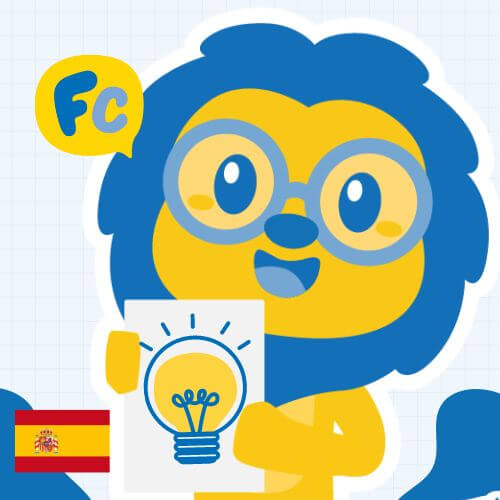
Not all words are created equal.
Some words are just used more frequently than others. And on that note, Spanish is no exception and has its own set of frequently used words.
👉 Knowing these words will ease any interaction you may have in Spanish.
So with that in mind, becoming familiar with these must-know Spanish words and phrases will help build your vocabulary foundation and propel your social skills when speaking Spanish.
Then at the end, don’t forget to test your knowledge with our free quiz!
50 Must-Know Spanish Words and Phrases || The Pleasantries
50 Must-Know Spanish Words and Phrases || Basic Inquiries
50 Must-Know Spanish Words and Phrases || Conversation Starters
50 Must-Know Spanish Words and Phrases || Travel Essentials
50 Must-Know Spanish Words and Phrases || Miscellaneous
50 Must-Know Spanish Words and Phrases || Quiz
50 Must-Know Spanish Words and Phrases || FAQs
50 Must-Know Spanish Words and Phrases ||
The Pleasantries
👉 For certain, when speaking Spanish, you are bound to hear any of the following polite greetings in your everyday conversations, so might as well incorporate them from the start into your vocabulary for easy and ready reference!
Hola (Hello)
This greeting is widely used as a way to say “hello”, admissible in practically any context.
Adiós (Goodbye) or hasta luego (See you later)
Both forms of bidding goodbye are common and used interchangeably.
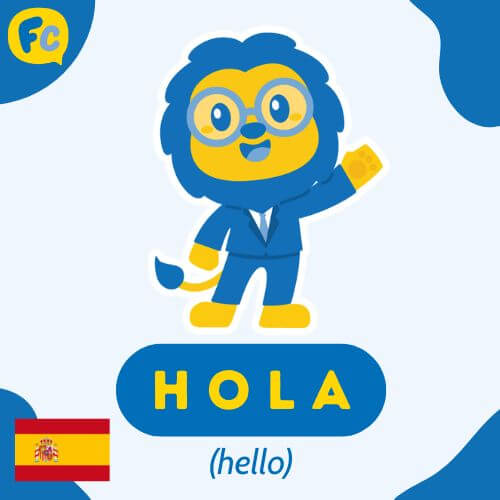
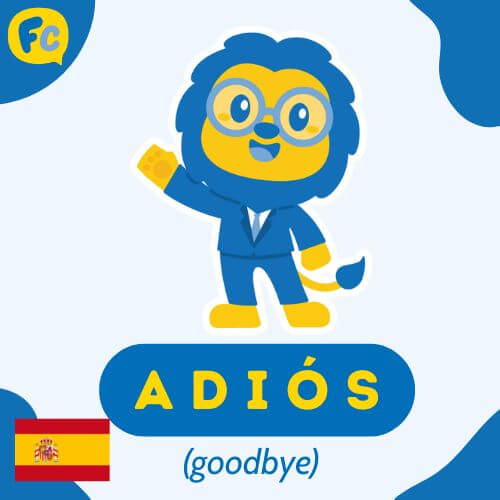
Buenos días (Good morning)
A polite morning greeting that is used frequently as well, instead of a simple “hello”, provided the time of day corresponds to the greeting, which is usually from the morning up until Spanish lunchtime.
Buenas tardes (Good afternoon)
A polite way to say “hello” in the afternoon up until the evening.
Buenas noches (Good evening/Good night)
Although it is more adept to use when bidding someone goodnight or as a parting greeting in the evening, it can also be used as a way of greeting someone a good evening.

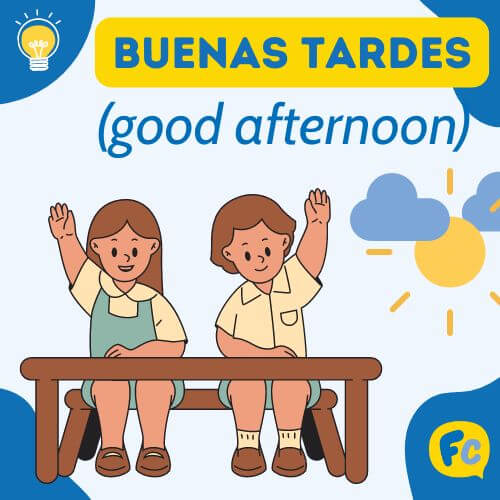
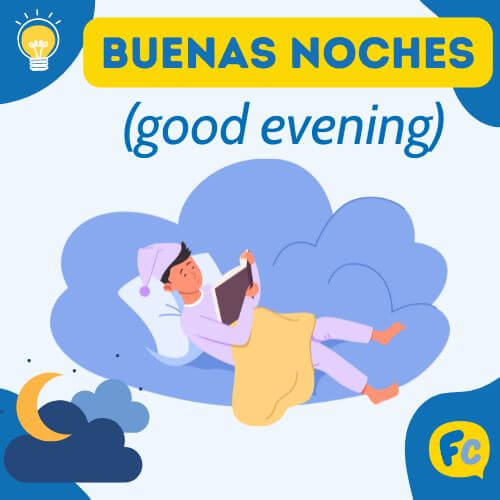
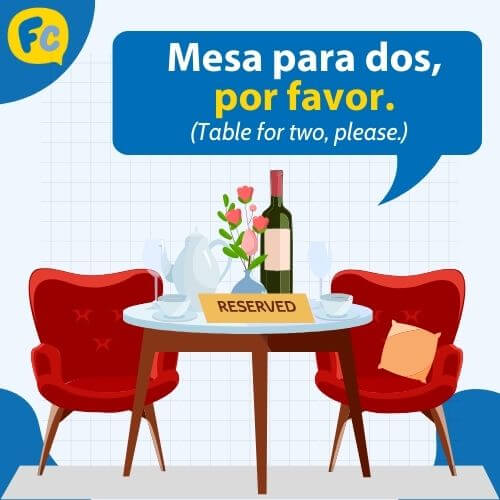
Por favor (Please)
This word is a must in any language.
Gracias (Thank you) or muchas gracias (Thank you very much)
This must-know word is self-explanatory!
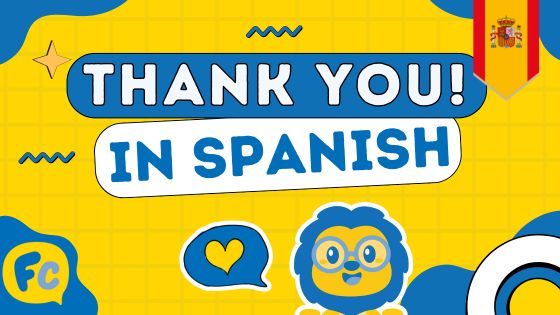
Ways To Say Thank You in Spanish – The Full Spectrum of Thank You (s)
The Basics – Common Alternativesand Expected Replies 👉 Saying ‘Thank you’ in any language is a basic vocabulary necessity and Spanish is no different. How to phrase a ‘Thank you’ and its variations in Spanish will undoubtedly change based on…
De nada or No hay de qué (You’re welcome)

Both can be used interchangeably to signify “you’re welcome”. The phrase no hay de qué may come across as a bit more cordial but is just as commonly used.
Perdón (Sorry/Excuse me)
The word perdón can be used either as a form of apology or a way to excuse oneself.
Lo siento (I’m sorry) Another common and must-know way of saying you’re sorry or apologizing.
| spanish | english |
|---|---|
| Hola | Hello |
| Adiós / Hasta luego | Goodbye / See you later |
| Buenos días | Good morning |
| Buenas tardes | Good afternoon |
| Buenas noches | Good evening / Good night |
| Por favor | Please |
| Gracias / Muchas gracias | Thank you / Thank you very much |
| De nada / No hay de qué | You’re welcome |
| Perdón | Sorry / Excuse me |
| Lo siento | I’m sorry |
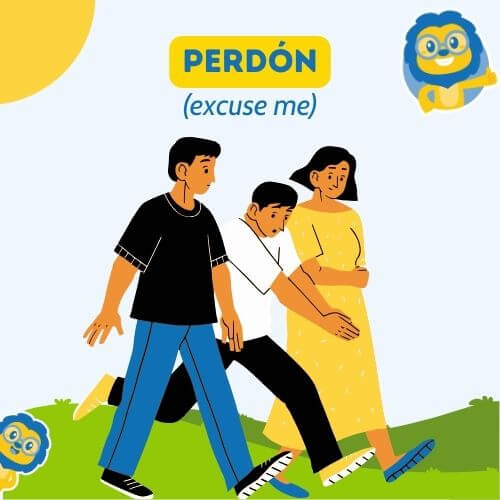
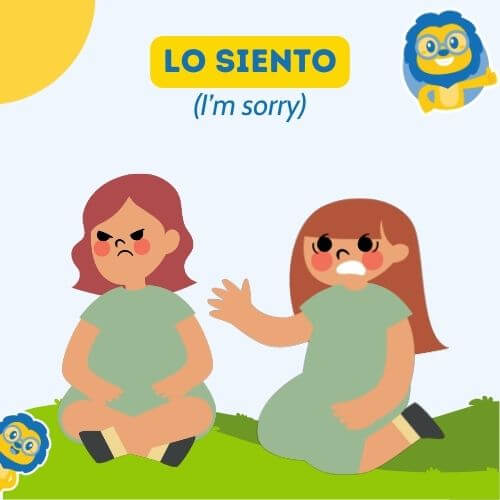
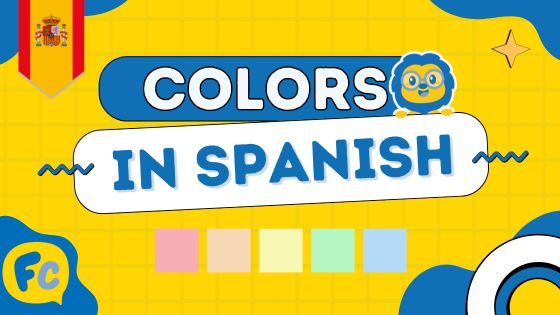
Colors in Spanish and How to Use Them 🎨FREE Quiz Included
Understanding Colors in Spanish // Vocab, Grammar and Fun Phrases Crayons, who didn’t love them as a kid? 🌈 When you think of colors, these eye candy crayons are one of the images that surely first come to mind. Crayons…
50 Must-Know Spanish Words and Phrases ||
Basic Inquiries
After the pleasantries and the introductions, usually follow the basic inquiries like
“How are you” and the like.
👉 Here are some must-know inquiries you will surely hear and use when speaking Spanish:
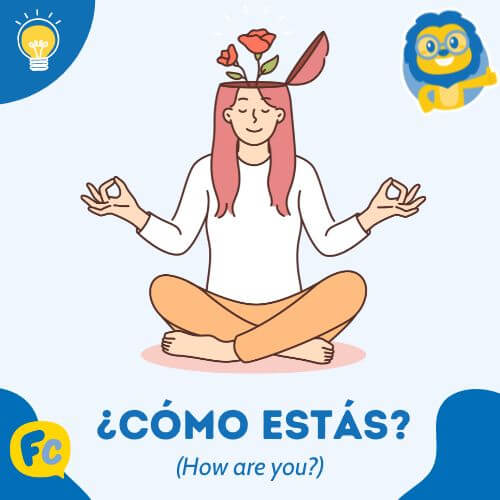
¿Cómo estás?
(How are you?)
¿Cómo estás? or ¿Qué tal estás?
These can be your go-to phrases when asking someone how they are doing or how they are feeling.
¿Qué tal?
¿Qué tal? (How are you?)
¿Cómo te va?This is a more casual and simplified version of ¿Qué tal estás? and is used frequently in less cordial contexts.
¿Qué pasa?¿Cómo te va? or ¿Cómo va? (How’s it going?) is used in less formal contexts to ask someone how things are going.
¿Qué pasa? (What’s up?). You will hear this more casual way of greeting someone often when in a more relaxed setting or with close friends or peers.
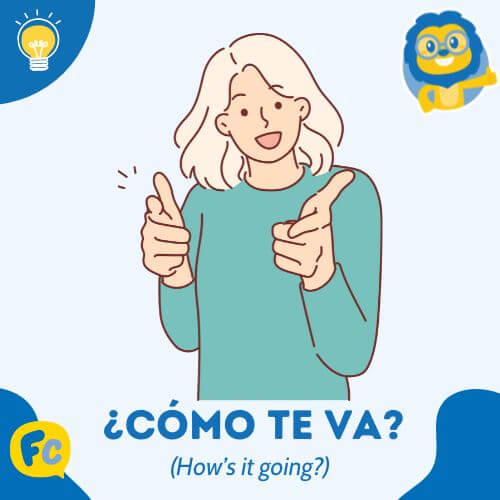
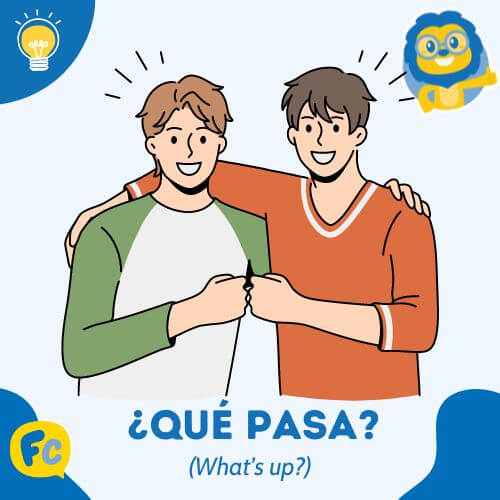
👉 Some of the frequently and commonly used replies to the basic inquiries mentioned and that must be in your Spanish phraseology bank are:
Bien, graciasBien, gracias (Good, thanks), or any variations to the phrase like Muy bien, gracias (Very well, thanks) or Estoy bien, gracias (I am well, thanks).
Bien, como siempre (Good, as always) or just plain, Como siempre (As always).
If one is not feeling upbeat or well, then these variations are in order: No muy bien, gracias (Not very well, thanks). No estoy bien (I am not well).
| spanish | english |
|---|---|
| ¿Cómo estás? / ¿Qué tal estás? | How are you? |
| ¿Qué tal? | How are you? (casual) |
| ¿Cómo te va? / ¿Cómo va? | How’s it going? |
| ¿Qué pasa? | What’s up? |
| Bien, gracias | Good, thanks |
| Muy bien, gracias | Very well, thanks |
| Estoy bien, gracias | I am well, thanks |
| Bien, como siempre | Good, as always |
| Como siempre | As always |
| No muy bien, gracias | Not very well, thanks |
| No estoy bien | I am not well |
50 Must-Know Spanish Words and Phrases || Conversation Starters
👉 Here are some basic and must-know conversation starters that can give you a lot of mileage when getting a conversation started in Spanish:
¿Cómo te llamas? (What’s your name?) is a perfectly polite way to ask someone’s name. And your go-to reply would be Me llamo… (My name is…), or you could directly introduce yourself, Hola, soy… (Hello, I’m…) or Hola, me llamo… (Hello my name is…)
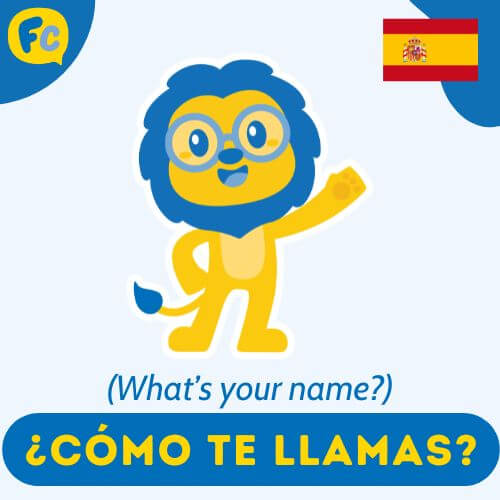
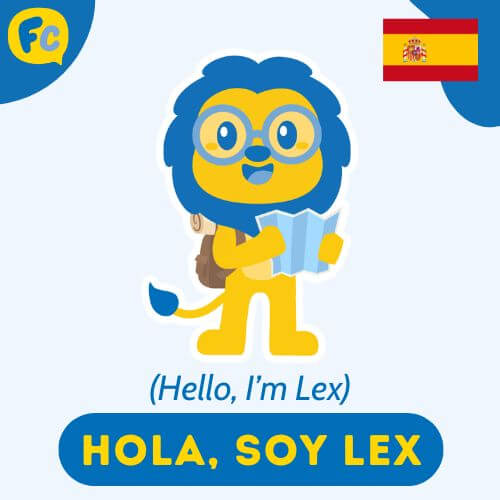
¿De dónde eres? (Where are you from?) is an acceptable way to inquire about someone’s background.
As for the common reply in Spanish to the question of where you are from, a commonly used one would be Soy de… (I am from…)
Encantado/a de conocerte (Pleased to meet you) or simply Encantado/a, both translate to “Pleased to meet you” and can be used in both formal and informal settings.
| spanish | english |
|---|---|
| ¿Cómo te llamas? | What’s your name? |
| Me llamo… | My name is… |
| Hola, soy… | Hello, I’m… |
| Hola, me llamo… | Hello, my name is… |
| ¿De dónde eres? | Where are you from? |
| Soy de… | I am from… |
| Encantado/a de conocerte | Pleased to meet you |
| Encantado/a | Pleased to meet you (informal/formal) |
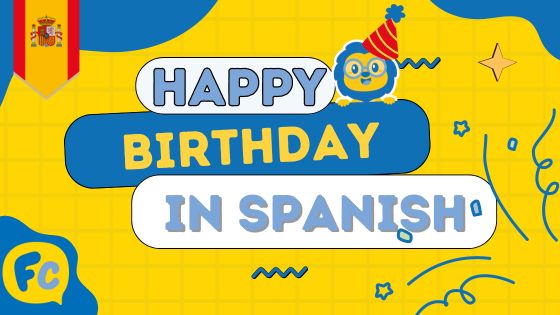
Here’s How to Wish Someone Happy Birthday in Spanish🥳
Happy Birthday in SpanishPLUS Traditions and Customs 🎂🎁 Who doesn’t love to celebrate a birthday? Spain is no different! In fact, Spain goes beyond just celebrating one’s birthday. Each one has two special days in a given year in Spain….
50 Must-Know Spanish Words and Phrases ||
Travel Essentials
There are indispensable phrases when on the go and traveling, like asking for directions or details on taking public transportation or ordering at a restaurant or café, to name a few.
👉 Here are some of the travel essential phrases you will need when moving around in Spain:
When asking for directions, you can use phrases such as:
¿Me podría ayudar, por favor? (Could you help me please?)
¿Cómo puedo llegar a…? (How can I get to…?)
¿Dónde está…? (Where is…?)
¿Para llegar a…? (To get to…?)
¿Dónde está la parada de metro más cerca? (Where is the nearest subway station?)
When taking public transportation, this phrase will come in handy. You can substitute the Spanish word metro for bus if need be.
¿Los servicios por favor?
(The bathroom please?)
or
¿Dónde están los servicios, por favor?
(Where are the restrooms please?) are your go-to phrases when asking where the restrooms are.
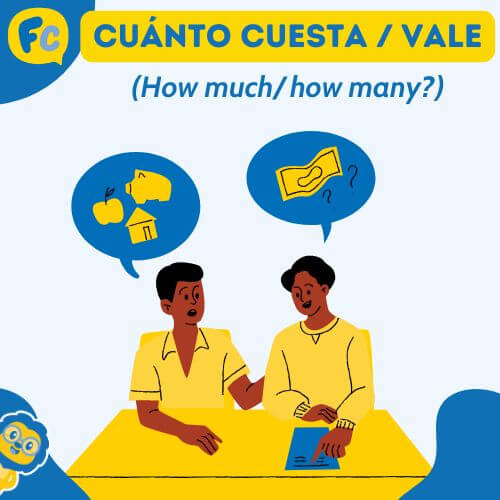
¿Cuánto cuesta? (How much?) or ¿Cuánto vale? (How much?), both can be used just as well to ask how much something costs.
Quisiera… (I would like…) is a phrase that is used when asking for or ordering something, like for example: Quisiera un café con leche. (I would like a café latte.)
La cuenta, por favor (The check, please) would be your go-to phrase when you’re at a restaurant and want to ask for the bill.
No entiendo (I don’t understand) or ¿Puede repetirlo? (Could you repeat?) or ¿Me podría ayudar, por favor? (Could you help me please?) can help you out when you’re in a pickle or don’t understand something.
| spanish | english |
|---|---|
| ¿Cómo puedo llegar a…? | How can I get to…? |
| ¿Dónde está…? | Where is…? |
| ¿Para llegar a…? | To get to… |
| ¿Dónde está la parada de metro más cerca? | Where is the nearest subway station? |
| ¿Los servicios, por favor? | The bathroom, please? |
| ¿Dónde están los servicios, por favor? | Where are the restrooms, please? |
| ¿Cuánto cuesta? / ¿Cuánto vale? | How much? |
| Quisiera… | I would like… |
| La cuenta, por favor | The check, please |
| No entiendo | I don’t understand |
| ¿Puede repetirlo? | Could you repeat? |
| ¿Me podría ayudar, por favor? | Could you help me, please? |
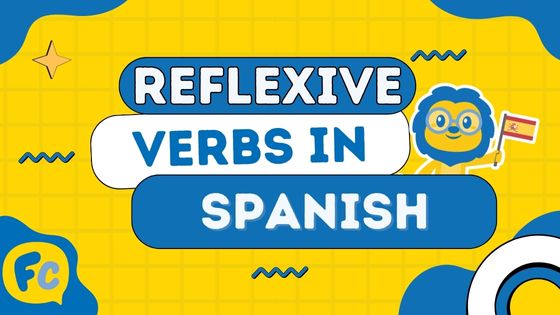
Your Comprehensive Guide to 159 Reflexive Verbs in Spanish
Reflexive Verbs in Spanish: When the Doer Becomes the Receiver 👉 Reflexive verbs in Spanish belong to the category of Pronominal verbs, so all reflexive verbs are pronominal, although not all pronominal verbs are reflexive. Pronominal verbs (in reference to…
50 Must-Know Spanish Words and Phrases || Miscellaneous
👉 Other must-know terms and phrases in Spanish that can come in handy are:
| Spanish | English |
|---|---|
| Sí / No | Yes / No |
| Vale | Ok |
| Quizás / Tal vez | Maybe |
| Siempre / Nunca | Always / Never |
| Claro / Por supuesto | Of course |
Now that you’ve mastered the knowledge above, why not explore these essential resources?
👉Reflexive Pronouns in Spanish
🌍 And for a more global challenge, make sure to take a look at Questions Words in Chinese and Question Words in Japanese
50 Must-Know Spanish Words and Phrases || Quiz
How well do you know your Spanish swear words?
Whether you knew some (or all) of them before reading this article, or on the contrary just learnt a bunch of them, take our quick fire quiz to see how well you remember them.
Share your results in the comments, and good luck!
50 Must-Know Spanish Words and Phrases || FAQs
What are the must-know numbers in Spanish?
For starters, have these Spanish numbers in your mental calculator:
Uno (One)
Two (Dos)
Tres (Three)
Cuatro (Four)
Cinco (Five)
Seis (Six)
Siete (Seven)
Ocho (Eight)
Nueve (Nine)
Diez (Ten)
Cero (Zero)
Cien (One Hundred)
What are the days of the week in Spanish?
The days of the week in Spanish are as follows (note that they are generally not capitalized unless they are used at the beginning of a sentence or are used as a proper noun (like as a holiday, name of a street, etc.).
lunes (Monday)
martes (Tuesday)
miércoles (Wednesday)
jueves (Thursday)
viernes (Friday)
sábado (Saturday)
domingo (Sunday)
How do you say today, yesterday and tomorrow in Spanish?
When referring to the sequence of days in Spanish, these are your go-to words:
Hoy (Today)
Mañana (Tomorrow)
Ayer (Yesterday)
Pasado mañana (The day after tomorrow)
Anteayer or antes de ayer (The day before yesterday)
How to express your basic necessities in Spanish?
Here are some common phrases that will come in handy when it comes to expressing your basic necessities in Spanish:
Tengo hambre (I’m hungry)
Tengo sed (I’m thirsty)
Tengo que ir al baño (I have to go to the bathroom)
Estoy cansado/a (I’m tired)
Tengo sueño (I’m sleepy)
Tengo frío (I feel cold)
Tengo calor (I feel hot)]
How to ask for directions in Spanish?
When asking for directions in Spanish, here are some practical must-know phrases:
¿Cómo puedo llegar a…? (How can I get to…?), for example:
¿Cómo puedo llegar al Museo del Prado? (How can I get to the Prado Museum?)
¿Dónde está…? (Where is…?), for example:
¿Dónde está la parada de metro más cerca? (Where is the nearest subway station?)
¿Para llegar a…? (To get to…?), for example:
¿Para llegar al aeropuerto, qué bus tengo que coger? (To get to the airport, what bus must I take?)
Want More From LTL?
FANCY LEARNING SPANISH? Check out our online Spanish courses here.
We offer a 7-day free trial to all online students where you can study Spanish 24/7. It doesn’t end there either.
We teach over 10 of the world’s most popular languages 😎
Come and be a part of our amazing community.











